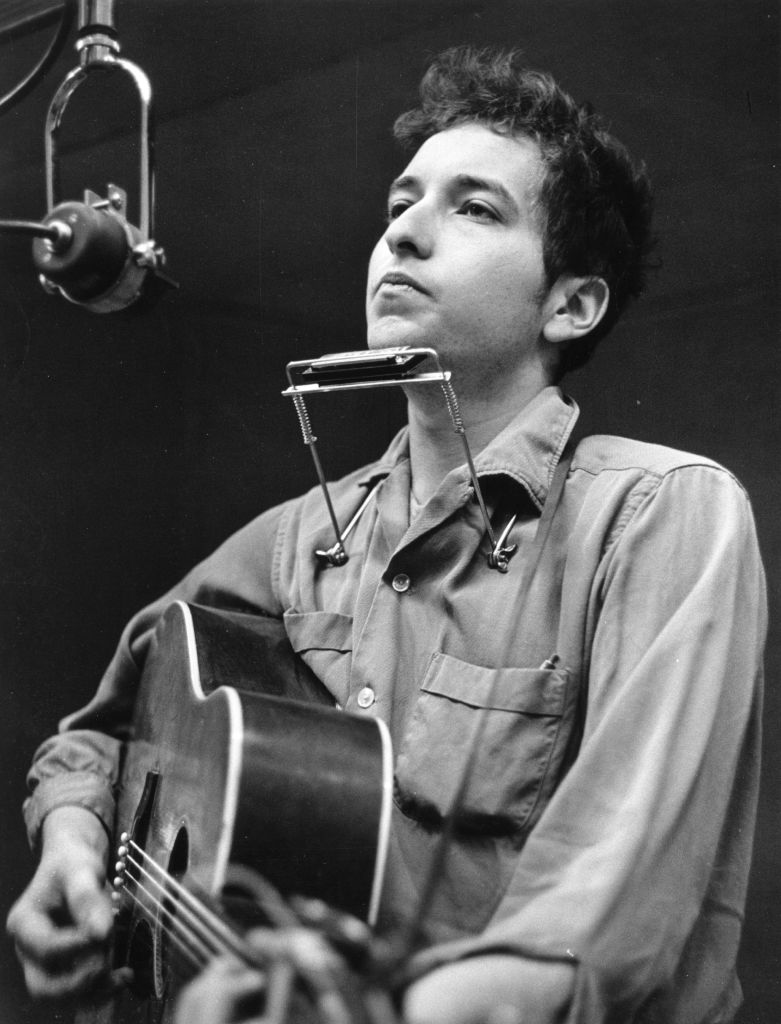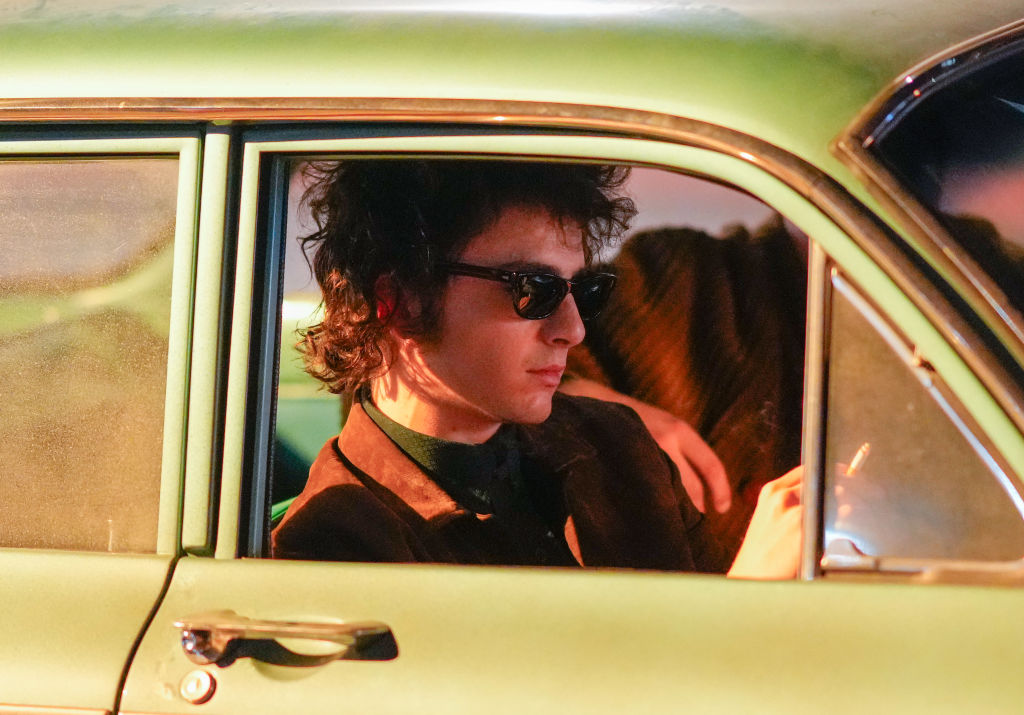
Bob Dylan recording his first album, “Bob Dylan,” in November 1961 at Columbia Studio in New York City.
Michael Ochs Archives/Getty Images
Voice of a generation? Dylan’s is much more than that.
Classics professor who wrote ‘Why Bob Dylan Matters’ on the challenge of capturing a master of creative evasion
“A Complete Unknown,” James Mangold’s new film about Nobel laureate Bob Dylan, will be released in the U.S. on December 25. Based on Elijah Wald’s 2015 book, “Dylan Goes Electric! Newport, Seeger, Dylan, and the Night That Split the Sixties,” the film, with Timothée Chalamet starring (and singing) in the lead role, depicts Dylan’s life from his 1961 arrival in New York to his controversial electric set at the Newport Folk Festival in 1965.
Mangold’s movie has been nominated for three Golden Globes, praised by critics, and blessed by Dylan himself, but the judgment of audiences, including hardcore fans, awaits. How to portray an artist who seems to take pride in his talent for evasion? And why try?
In this edited conversation with the Gazette, Richard F. Thomas, the George Martin Lane Professor of the Classics and author of “Why Bob Dylan Matters,” discusses Dylan’s complex career, his singular voice, and his lasting impact as a songwriter and performer.
Dylan’s voice is extremely important to his music. How hard is it to get that voice right?
Dylan never strives to recover in performance the sound of a studio album. The crowd may want to hear what they heard when they first dropped the needle on the record. Dylan’s not interested in that. Dylan is interested in the living song, and so, the living song will change from performance to performance. Take a great song like “Don’t Think Twice, It’s All Right,” and that final verse. Now, if you say it: “Don’t think twice, it’s all right,” that gives the song a certain meaning. If you sing “Don’t think twice, it’s all right,” that gives the song a very different meaning, both in its last verse and back onto the whole song. Dylan constantly is doing that. He’s upsetting audience expectation of the lyrics themselves, which change in performance as well as in drafts. He’s an oral poet in that way.
Should we be looking for an exact Dylan impression in this film? Is it possible to accurately depict someone who has never wanted to be categorized?
I think it’s a challenge. Dylan was a little more open, though still dealing with the personas, in the early years. It’s in some ways easier to capture the Dylan of ’61, ’62, ’63, even though we don’t have much documentation of him. He was clearly concerned to not reveal too much from an early stage, but that of course intensified as he as he said himself, “I’m only Bob Dylan when I have to be.” That’s why I liked Todd Haynes’ movie [“I’m Not There,” which came out in 2007]. I thought Haynes’ way of dealing with the personae by having different characters of different ages and races and even gender playing Dylan was a brilliant move. Obviously, Mangold went at it more directly. That’s a greater challenge, in a way.

Timothée Chalamet as Bob Dylan in “A Complete Unknown.”
Photo by Gotham/GC Images
What are your expectations for the film?
I don’t really care that much about the lived everyday life of Dylan as, partly from being a classicist, my poets have been dead for 2,000 years, and most of the biographical information is invention about them. Invention, from a century or more later, after they’d been classics, after they were being taught in the schools. Now, with Mangold, he sat down and I guess had two or three long conversations with Dylan and, from what I’ve read, Dylan told Mangold a few things that are not known from those years. So, will those be in the movie? And if so, will they reflect reality and truth, or will they reflect what Dylan was creating in 2023 or 2024, whenever he spoke to Mangold? Even the new biographical detail that we may get in the movie will not necessarily be reliable because it may well be a creative act by Bob Dylan.
Even if I personally end up being slightly disappointed, that won’t mean that the movie has failed. I don’t think it’s made for people like me. It’s made to depict a lifetime, or just a slice of a lifetime of the genius of our age, in terms of use of the English language in song.
After 20 years, why continue teaching a course on Dylan?
It’s partly the lyrics. He’s a poet; the lyrics are enduring. They’re not tied to a chronological moment or a political or cultural moment, they’re about issues that are enduring, that repeat over time, over history. Is that partly me, because I have followed Dylan so closely, whereas I haven’t necessarily followed or replayed Herman’s Hermits, Gerry & The Pacemakers, or other singers and groups I loved when I was young? Maybe it’s partly that, but I think it’s also Dylan. The classic status is one that establishes itself retrospectively. Dylan’s unusual in that the career continues in new and newly creative ways. There may even be another album — praise God if so! The story is still going on. And even when the story’s over, there will be performances and versions that we haven’t heard.
“Why do I keep teaching Dylan? The same reason I keep teaching Virgil or Horace or Ovid: because it’s great literature, performance, great whatever you want to call it, and it represents the best that human genius can give us. ”
Why do I keep teaching Dylan? The same reason I keep teaching Virgil or Horace or Ovid: because it’s great literature, performance, great whatever you want to call it, and it represents the best that human genius can give us. That’s a gift that we should treasure and keep passing on as long as we have breath to do so.




